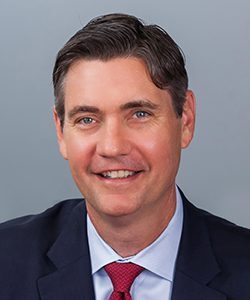 In the many conversations I’ve had with CEOs over the last month-plus, most have expressed a concern about their teams. Chief executives I know in healthcare are simply doing everything they can to provide resources, guidance and emotional support to their staffs. In other industries, as organizations have pivoted to remote operations, the lack of a physical boundary between home and work is creating an environment where the workday feels like it never really ends. Telling employees to pursue work-life balance during the current pandemic can be a stressor in itself—they may try to disengage from work while still feeling obligated to, for instance, open their inboxes after hours to check email. Additionally, those that live alone feel even more isolated and those living with their families can feel familial overload stresses.
In the many conversations I’ve had with CEOs over the last month-plus, most have expressed a concern about their teams. Chief executives I know in healthcare are simply doing everything they can to provide resources, guidance and emotional support to their staffs. In other industries, as organizations have pivoted to remote operations, the lack of a physical boundary between home and work is creating an environment where the workday feels like it never really ends. Telling employees to pursue work-life balance during the current pandemic can be a stressor in itself—they may try to disengage from work while still feeling obligated to, for instance, open their inboxes after hours to check email. Additionally, those that live alone feel even more isolated and those living with their families can feel familial overload stresses.
The long-term effect is employee burnout, an organizational issue that CEOs were already wrestling with before the onset of COVID-19. The Mayo Clinic defines job burnout as “a state of physical, emotional or mental exhaustion combined with doubts about your competence and the value of your work.” Take a temperature check and see if this applies to those on your team. Moreover, does it apply to you?
Gallup estimates that roughly two-thirds of workers experience burnout occasionally or frequently. In a survey of healthcare leaders conducted by WittKieffer before the pandemic, four-fifths (79%) felt that burnout was negatively affecting their organizations. It’s reasonable to assume that the percentages have increased in the face of the global health crisis we’re currently experiencing.
Clearly, burnout is a challenge that leaders must accept and address for themselves, their employees and their organization as a whole, especially during times of severe disruption such as now. The following are ways that CEOs can make it happen, even from afar.
For leaders and their team:
1. Look in the mirror. Many CEOs see it as a badge of honor to work the longest hours and to bear the greatest burden, yet you can’t effectively lead others if your tank is empty. Ask yourself, “What am I doing right now to take care of myself in this time of extreme stress?”
According to Mandy Ginsberg, who recently stepped down from her post as Match Group CEO to prioritize her own health and wellness, the first step to combatting burnout is leading by example and “[changing] this antiquated notion that there is no place for personal priorities in the C-suite.” She adds, “We should view people who make good choices for their health as good employees,” executives included.
If at all possible in these challenging times, keep your priorities focused, preserve energy where possible, and whatever inspires you besides work, make time for it. Your work will benefit as a result.
2. Delegate with trust. One of the most important roles of the CEO is building the right team through diverse and empowered resources and letting it do its job. If the CEO needs to be involved in every decision, especially now, organizations can’t be nimble. While delegating to others often runs counter to our natural inclinations as leaders, doing so is an excellent means of empowering others. Besides, if something isn’t mission-critical, do you need to weigh in personally?
3. Listen to your people. If your workplace is or has become burnout-prone, ask your team what specifically it is that is wearing them down. Survey them. Chat with them on Zoom. Practice the virtual alternative to MBWA (management by wandering around) to get a true sense of employees’ stressors and challenges in their new situations. While you want your team to step up in a time of crisis, they will only do so if you show empathy and listen to their needs and concerns (which are numerous right now).
4. Understand your employees are likely experiencing the crisis different than you. CEOs and senior teams are working on adrenaline to address the organization’s response to the crisis. It is an all-consuming event that tests the leadership team’s skills, stamina and cohesiveness. Many of those outside the C-suite are actually experiencing a slowdown in work and the stresses of not having enough to do professionally. CEOs should look for ways to engage this newfound capacity to reimagine how the organization will emerge from the crisis.
For the organization:
1. Practice company hygiene. Do employees have what they need to do their jobs and do them well? “Burnout happens when presupposed features in our day-to-day work lives are missing or taken away,” writes workplace expert Jennifer Moss. Work to identify what your team is lacking or in need of (e.g., staff, technology, data, time) in their new work situation and check in regularly regarding remote resources.
2. Promote organizational mindfulness. Just as personal mindfulness has grown into a mainstream phenomenon, the idea of an organization encouraging mindfulness and being aware of its own culture, habits and behaviors is catching on and is now particularly relevant. Our brains don’t like feeling out of control, so focusing on maintaining control over how we perceive, process and talk about work – and doing so as a collective – has a positive impact on how we ultimately feel and act.
It is the CEO’s responsibility to prioritize employee health and well-being, especially now – and taking care of oneself is the best place to start.

Chief Executive Group exists to improve the performance of U.S. CEOs, senior executives and public-company directors, helping you grow your companies, build your communities and strengthen society. Learn more at chiefexecutivegroup.com.
0

1:00 - 5:00 pm
Over 70% of Executives Surveyed Agree: Many Strategic Planning Efforts Lack Systematic Approach Tips for Enhancing Your Strategic Planning Process
Executives expressed frustration with their current strategic planning process. Issues include:
Steve Rutan and Denise Harrison have put together an afternoon workshop that will provide the tools you need to address these concerns. They have worked with hundreds of executives to develop a systematic approach that will enable your team to make better decisions during strategic planning. Steve and Denise will walk you through exercises for prioritizing your lists and steps that will reset and reinvigorate your process. This will be a hands-on workshop that will enable you to think about your business as you use the tools that are being presented. If you are ready for a Strategic Planning tune-up, select this workshop in your registration form. The additional fee of $695 will be added to your total.

2:00 - 5:00 pm
Female leaders face the same issues all leaders do, but they often face additional challenges too. In this peer session, we will facilitate a discussion of best practices and how to overcome common barriers to help women leaders be more effective within and outside their organizations.
Limited space available.

10:30 - 5:00 pm
General’s Retreat at Hermitage Golf Course
Sponsored by UBS
General’s Retreat, built in 1986 with architect Gary Roger Baird, has been voted the “Best Golf Course in Nashville” and is a “must play” when visiting the Nashville, Tennessee area. With the beautiful setting along the Cumberland River, golfers of all capabilities will thoroughly enjoy the golf, scenery and hospitality.
The golf outing fee includes transportation to and from the hotel, greens/cart fees, use of practice facilities, and boxed lunch. The bus will leave the hotel at 10:30 am for a noon shotgun start and return to the hotel after the cocktail reception following the completion of the round.